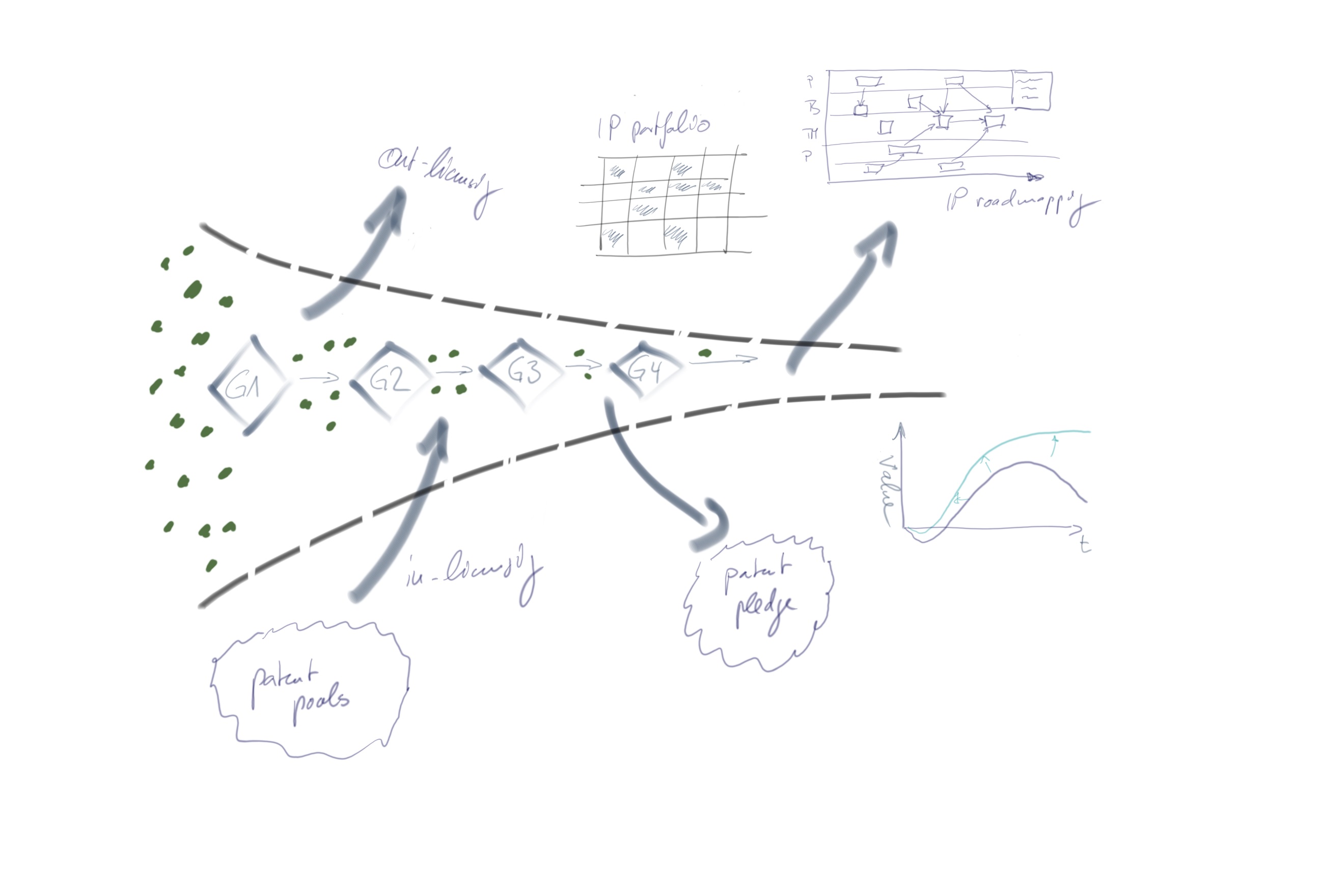Research Areas:
Strategic IP and innovation management
Over the last decades the management of intellectual property (IP) has received increasing attention. With the shift from an industrial economy to knowledge and intellectual asset economies, the unbelievable speed of software development the allocation of ownership rights for intellectual property, but also the management of usage rights (licensing) is critical for firms across industries.
Particularly, in open innovation projects IP and patents in particular are perceived to be more important than in closed innovation processes. IP is often crucial for firms and other organizations, such as universities, to ensure they can maximize value capture, while actually sharing their IP. We are interested in appropriation strategies for value maximization, but also the motives behind open IP strategies (e.g. patent pledges) for accelerating technology diffusion for setting defacto or formal standards.

In our research we are interested in all strategic aspects of IP management within innovation processes, particularly in distribute and open innovation ecosystems with emphasis on emerging technologies which potentially can disrupt existing path dependencies. We are very much interested to work with sustainable technologies that contribute to accelerating economic and societal transitions to society. We are also interested in IP aspects of product-service systems (e.g. business models where product ownership is not transferred to the user, but remains with the manufacturing company). These business models have been shown to be of particular relevance for sustainability transitions and the circular economy.
Given that not many successfully proven IP management tools exist, as part of our research we aim to contribute to the development of better tools for strategic decision making around IP related aspects in the innovation process. For instance, we are interested in IP roadmapping, but also portfolio management and licensing models.
Technologies for IP management
Services and business processes become increasingly digitised, hence technology-based or supported by technologies. Novel technologies are changing many different aspects of our life and increasingly impact how decisions are made. We are particularly interested in how new technologies, such as artificial intelligence, machine and deep learning, but also visualization techniques and blockchain with smart contracts may impact IP-related business processes, such as patent analytics, IP management and licensing.
Technologies such as AI may support decision making at gates of stage-gate processes, AI may also support the drafting of patent applications and machine learning the identification of potential licensees in other industries and markets, which are usually the difficult unknown-unknowns.
Blockchain, respectively Distributed Ledger Technologies and smart contracts may have applications, such as for automating licensing payments eliminating trust problems, information asymmetries, ultimately reducing transaction along complex supply chains and innovation systems.
Our research addresses these and other issues focusing on how novel technologies will shape the future of and “re-invent” IP management and licensing.
